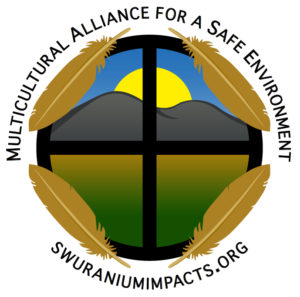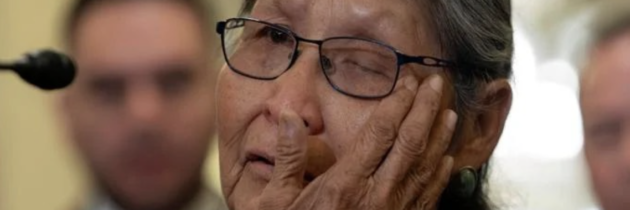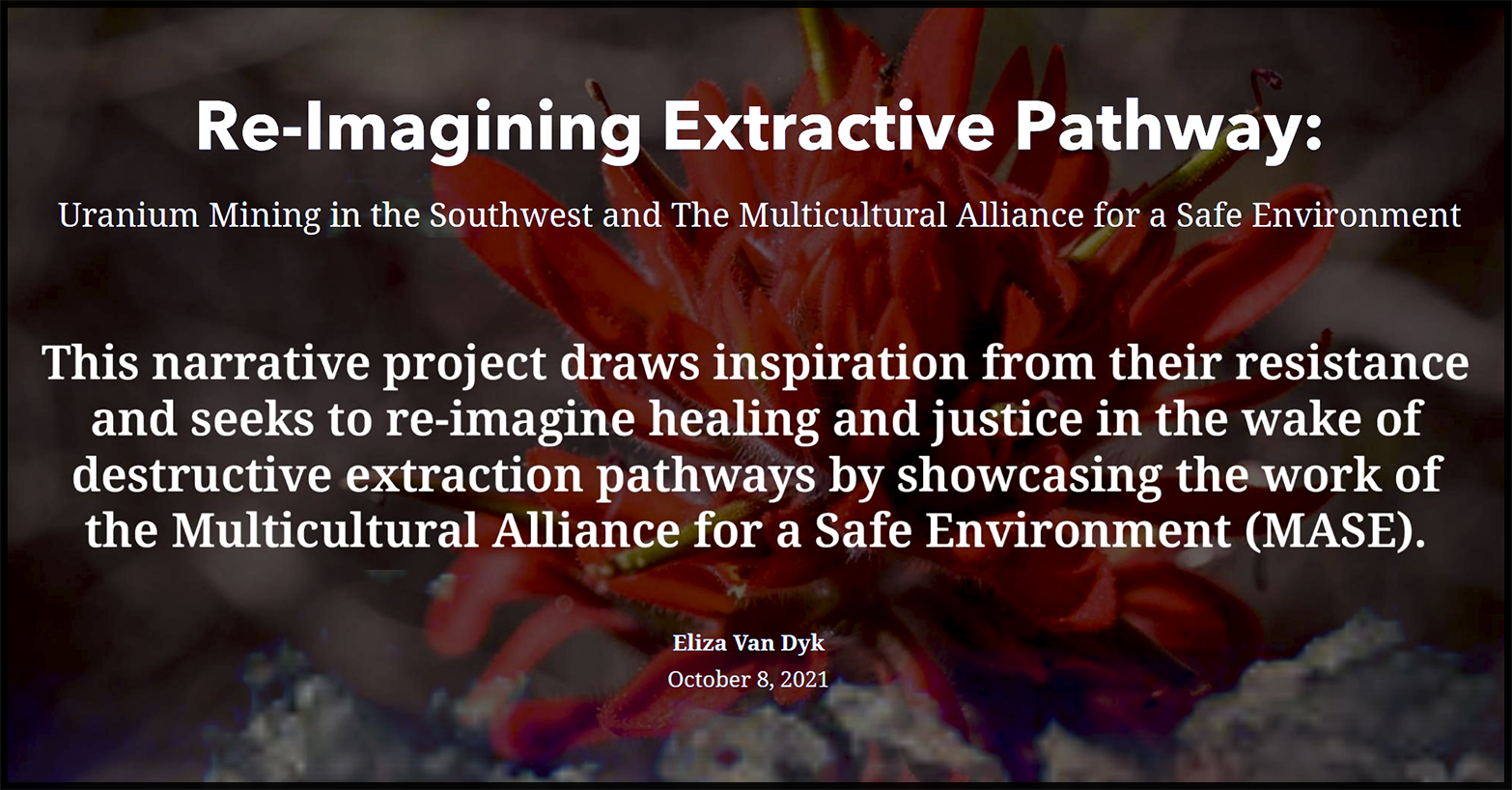Advocates on long road to reinstate federal radiation exposure act

Navajo Nation member Carol Etcitty-Roger speaks about cancer in her eye from radiation exposure during a news conference about the Radiation Exposure Compensation Act on Tuesday. Jose Luis Magana/For The Associated Press
- By Alaina Mencinger amencinger@sfnewmexican.com Sep 24, 2024
-
https://www.santafenewmexican.com/news/local_news/advocates-on-long-road-to-reinstate-federal-radiation-exposure-act/article_da3a9cf0-79fc-11ef-918d-3f8d04b197a8.html?utm_source=santafenewmexican.com&utm_campaign=/newsletters/your-morning-headlines/?123&-dc=1727262027&utm_medium=email&utm_content=read more
There were more than five hours to go before the group reached Washington, D.C.
But, Loretta Anderson said, some of the women on the bus were already itching to dance.
Anderson, from the Laguna Pueblo, was one of about 30 people riding across the country Monday afternoon to advocate for reauthorization of the Radiation Exposure Compensation Act, a 1990 federal program to provide compensation and health screenings to uranium miners, people on-site during nuclear weapons tests and those living downwind of test sites.
Only parts of Arizona, Nevada and Utah qualified for compensation under the act. Advocates have for years been pushing for the inclusion of New Mexico downwinders, including those who experienced fallout from the first detonation of a nuclear weapon at Trinity Site. Earlier this year an effort to expand the act to encompass New Mexico residents saw a successful Senate vote — but the House allowed the program to expire in June.
“Our community is in mourning,” Anderson said. “We don’t know what to do anymore.”
So, the New Mexico advocates took to the road.
There are now more “RECA warriors” than ever, Anderson said, and they’re not going away.
The group planned to protest, sing and dance — bringing “power, prayer, song and light,” Anderson said — over the next few days to urge a vote in favor of reinstating and expanding the legislation.
By Monday afternoon, Anderson and the others had been on the road for more than 24 hours.
“Right now … where are we?” she called out.
Virginia was the answer.
The New Mexico congressional delegation Tuesday pushed House Speaker Mike Johnson to put the RECA bill to a vote.
“We are fighting for justice — not just for those in New Mexico, but across the country who have been affected by radiation exposure, nuclear weapons testing, and working in uranium mining,” Sen. Ben Ray Luján said in a statement after a news conference Tuesday in Washington. “The broad bipartisan support shown in the Senate makes it clear that passing the RECA is a bipartisan priority. That is why I am calling on Speaker Johnson to act now to ensure these victims receive the compensation they are owed.”
Phil Harrison of Rio Rancho was one of the speakers at the news conference.
Harrison told The New Mexican he started working in a uranium mine in Gateway, Colo., when he was 18. He was still in high school, yet he and many others in the area picked up a shovel.
“Everybody went to work to support their family,” Harrison said.
His father, another mine worker, was diagnosed with lung cancer in the 1970s. Years later, Harrison himself began experiencing kidney problems. He said he was never educated about the risks.
Dozens of people marched Tuesday, Harrison said. They were joined by several legislators.
“You never turn down when a Navajo says t’aa shoodii [please],” Harrison said. “This march was for that. I hope that they heard us.”
The road to D.C. has been full of sacrifice, Anderson said; elders riding the bus have struggled with swollen legs from the long hours. She feels hopeful the House of Representatives will support the legislation.
“It’s been a long, long drive. We have some troopers here, some people that are so determined to get to D.C. and tell their stories. … This is where their heart is,” Anderson said. “They haven’t complained.”
Both Anderson’s parents worked in uranium mines. Her father died of cancer in 2020; her mother died in 2022.
“As I was sitting on the bus, I was looking up [and thinking,] ‘Dad, are you proud of me?’ ” Andersons said. “I know he would be.”






